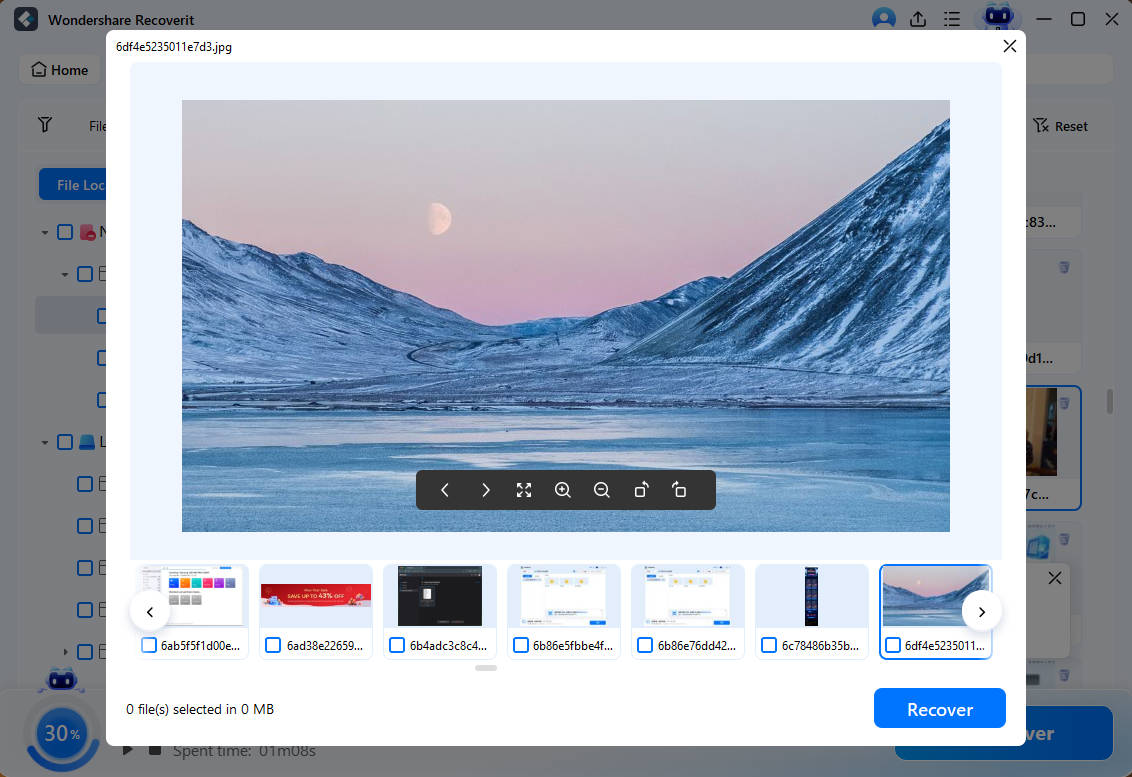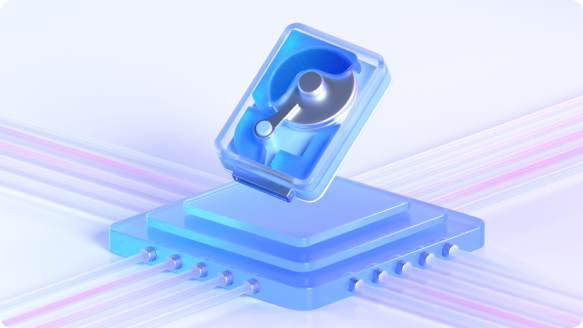Windows 10 Stuck at Green Screen of Death? Follow these Methods to Fix the Green Screen Error
"My Windows 10 PC has suddenly landed on a Green Screen. I can't access my System due to this Green Screen on my PC. Is there any way to fix the Green Screen of Death?"
Green Screen of Death on Windows 10 and other OS is the most concerning issue for those who don't understand it. There are instances when a Windows user can face a Green Screen of Death or Blue Screen of Death, but there are several ways through which you can fix the issue of Green Screen in Windows.
Part 1: What is the Green Screen of Death?
Very few people know about the Green Screen of Death in Windows 10 or other versions because very few people face it. The green screen of Death is similar, if not the same, to BSOD (Blue Screen of Death). The only difference between GSOD and BSOD is that the green screen only occurs if a user is running on the Windows Insider Program, whereas the Blue Screen is a general but rare error faced in normal Windows. However, the factors responsible to cause BSOD are also responsible to cause the Green Screen of Death on Windows 10.
Part 2: What Causes a Green Screen?
Similarly, like BSOD, the Green Screen on Windows 10 is a result of the critical failure of Windows. Most of the time it is either due to the failed hardware, or the low-level software operating in the kernel of Windows. It is a "Stop error" that results in your Windows getting crashed. The malfunctioning of your System's hardware driver's also can be one of the main reasons behind the Green Screen of Death on your Windows.
Part 3: How to Fix Windows 10 Green Screen?
As you know the Green Screen of Death in Windows 10 is a result of either hardware failure or buggy software. Thus, several easy ways can fix the Green Screen on your PC. All you need to do is to follow one method at a time, and see if the Green Screen of Death is fixed or not.
1. Disconnect all peripherals
The Green Screen of Death on Windows 10 can be caused by any of the connected peripherals like external USB drive, external power cord, external keyboard, etc. So, if you want to fix the green screen on your PC, the most basic thing you should do is to disconnect all the peripherals one by one, and see if the green screen of death is fixed or not. If in case disconnecting all the peripherals from your Windows PC doesn't fix the Green Screen of death, then the issue is most likely being caused by some another factor.
2. Update your drivers
One of the reasons that might be causing the Green screen of death on your Windows can be the outdated Drivers. To solve this problem, you are required to update all the outdated drivers of your system.
Note: If due to the Green Screen error, you are not at all able to access your System, then you will need to restart your Windows into Safe mode.
Enter Safe Mode:
Step 1. To enter Safe Mode, you first need to restart your System a couple of times in the boot mode. This will take you to the "Automatic Repair". Under Automatic Repair, choose "Troubleshoot" and then go to "Advanced Options". Under Advanced Options go to "System Startup" and then click the "Restart" button you see.
Step 2. This will make your system reboot, and when it restarts, you are required to choose "Safe Mode with Networking" option to access your Windows in Safe mode.
Once you have successfully entered your System in Safe mode, you'll be then required to proceed ahead with the process to Update Drivers.
Update the Drivers:
Step 1. Once you are on the home screen of your Windows in the safe mode, you need to go to the search-panel on Task Bar and search for "Device Manager".

Step 2. Once you are on the Device Manager window, you will see all of your System's internal components listed. Go to each of the listed devices and click on it to find the "Update Driver" option.

Follow the on-screen instructions further to update the Drivers. Update all the drivers that you find outdated. Once the drivers are updated, try to restart your system and see if the issue of Windows 10 Green screen is fixed or not.
3. Remove third-party antivirus tools
Third-party antiviruses can cause your computer to slow down and malfunction. The error of the Windows 10 Green Screen is also caused by anti-viruses in some instances. That's why whenever you face a PC green screen issue, we recommend you to uninstall all the Third-party antivirus tools operating on your PC.
Step 1. From the home screen of your Windows 10, go to the "Start menu" and then click on the "Setting icon" to go to System Settings.

Step 2. Once you are on the System Settings menu, go to "Apps". Under Apps, go to the "Apps and Features" tab.

Step 3. Once you are on the Apps and Features panel, you will see all the third-party apps of your System listed. Now, look for the third-party anti-virus in your system, and any related program.
Step 4. Click on the program to see the "Uninstall" option. Click on "Uninstall" to uninstall the program.

Note: Uninstall all the third-party anti-virus and firewall tools on your system. Also, make sure you uninstall any family tool for the third-party anti-virus.
Once you have uninstalled all the third-party antivirus tools, restart your Windows 10 System in normal mode to see if Windows 10 Green screen issue has been solved or not.
Also, if you want to use an Antivirus tool to keep your system safe. We recommend you to use Windows inbuilt "Windows Defender" antivirus and firewall tool. It is comparatively better and less problematic.
4. Reinstall Windows 10
If none of the above-mentioned methods is working for you, then the only remaining solution is to reinstall Windows 10 on your PC. Yes, reinstalling the Windows will wipe out all the dead or decaying factors of your System that might be causing the Windows 10 green screen issue. There are several ways to reinstall Windows 10, but simply going back to the previous version is the best option. You will lose all of your data while reinstalling Windows 10, thus we recommend you take a backup.
Note: You need to take a backup before you reinstall Windows. With the backup of your important and personal data, we suggest you back up your accounts and settings as well.
Step 1. Once you are on the Home page of your Windows 10, go to the "Start Menu" and then click on the "Settings icon" to navigate to the "System Settings".
Step 2. Once you are on the "System Settings" window go to the "Update & Security" option.
Step 3. Under the Update & Security window look for the "Recovery" option. Click on the "Recovery" option to go to the Recovery panel.
Step 4. Once you are on the Recovery panel you'll see the "Go back to the previous version of Windows 10" option. Click on the "Get Started" button under it.

Step 5. After clicking Get Started button, Windows will take some time to analyze the file sizes it has to deal with. You'll be taken through a survey by the Windows to prepare for the rollback. You need to follow the onscreen instructions and proceed through all the steps until you see the "Choose an Operating System" window.
Step 6. On the "Choose an Operating System" window, you'll be required to choose the "Windows Rollback" option. Follow the on-screen instructions to complete the process. If the preparation works fine, then you'll be able to roll back to the last updated version of Windows 10. By the way, you may also want to know how to fix the black screen problem.
Part 4: Recover Lost Data from Windows 10 with Recoverit
Reinstalling Windows can result in the loss of your critical data. Though you can always take a backup, there are several instances when you might lose all of your data. But there is no need to panic. You can always recover your lost data with the help of a good recovery tool.
We recommend you to use Recoverit Data Recovery to recover your lost data from the System. With the help of Recoverit, you'll be able to recover all the lost data with the original quality preserved. It also allows you to configure your recovery with various practical and powerful features. Even though Recoverit is extremely powerful and feature-rich, it comes at comparatively affordable pricing, making it a very preferred choice for professionals.
- Ability to recover from various kinds of Storage Devices and Drives.
- Ability to recover more than 1000 File Types.
- Ability to configure scanning through features like Filter, Location, and File type selection, Pause, and Resume option.
Step by Step process to recover data on Windows 10:
Step 1. After installing Recoverit and completing the registration process on your Windows PC, you are required to launch the tool and select a location or Drive. On the "Drive Selection window" you need to select a drive or location from where you want to recover your lost data and then hit "Start".

Step 2. Selecting the Drive and clicking the Start button will initiate the scanning of your selected drive. As the scanning proceeds, you will see the list of scanned and recoverable files being formed on a new window. Various features on this window allow you to configure the scanning process and scanning results:
- You can configure and refine the scanning process by choosing a particular "File Type" and "File Path" from the respective options on the right-side panel of your scanning window.
- As the scanning process takes time depending upon the size of the data, you can use the "Pause" and "Resume" feature to actually pause the scanning and resume it again later.
- The tool allows you to filter out the scanned files and sort them as per your need. To do so, you can use the "Filter" option at the left-hand panel of the scanning window.

Step 3. Once you have all the scanned and recoverable files listed, you can now proceed with the recovery. To recover files, you need to find and select the files you want to recover. You can find the files by searching through the search panel or sorting the files. Select the files and click on the "Recover" button. Choose a secure location on your System. The tool will recover and store all your selected files on the selected location.

Conclusion:
Similar to BSOD, the Green Screen of Death on Windows 10 is also a complicated error. But by following the right methods anyone can easily fix it. Thus, follow the above-mentioned methods to fix the Green screen error on Windows 10.
People Also Ask
-
How do I fix the green screen of death on Windows 10?
Ensure that all peripherals such as a mouse, external power cord, or USB drive, are disconnected from the computer. Restart your computer a couple of times or more. Download the Creators Update ISO files for Windows 10 on the Microsoft Update page.
-
What causes the Green Screen of Death?
An external connection or peripherals can develop issues that will cause problems for your Windows 10, thereby leading to a green screen of death. Hard drive damage can cause a green screen.
-
Why is my laptop showing a green screen?
Your laptop may show a green screen if the connection cable between the motherboard and the motherboard is loose or not properly done. It could also be a driver issue.
Computer Troubleshooting
- Win System Crash
- Windows Tips
- Computer Problems
- Blue Screen Errors











 ChatGPT
ChatGPT
 Perplexity
Perplexity
 Google AI Mode
Google AI Mode
 Grok
Grok























David Darlington
staff Editor